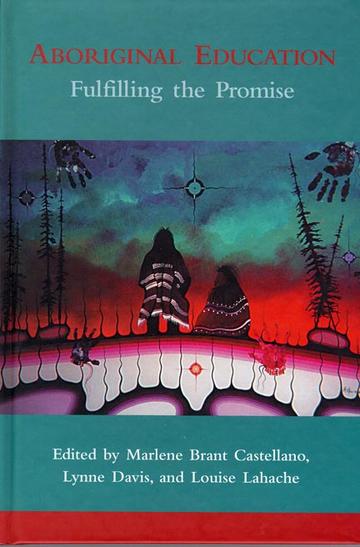About BC Books Online
BC Books Online was created for anyone interested in BC-published books, and with librarians especially in mind. We'd like to make it easy for library staff to learn about books from BC publishers - both new releases and backlist titles - so you can inform your patrons and keep your collections up to date.
Our site features print books and ebooks - both new releases and backlist titles - all of which are available to order through regular trade channels. Browse our subject categories to find books of interest or create and export lists by category to cross-reference with your library's current collection.
A quick tip: When reviewing the "Browse by Category" listings, please note that these are based on standardized BISAC Subject Codes supplied by the books' publishers. You will find additional selections, grouped by theme or region, in our "BC Reading Lists."
Education is at the heart of the struggle of Aboriginal peoples to regain control over their lives as communities and nations. The promise of education is that it will instruct the people in ways to live long and well, respecting the wisdom of their ancestors and fulfilling their responsibilities in the circle of life. Aboriginal Education documents the significant gains in recent years in fulfilling this promise. It also analyzes the institutional inertia and government policies that continue to get in the way.
The contributors to this book emphasize Aboriginal philosophies and priorities in teaching methods, program design, and institutional development. An introductory chapter on policy discourse since 1966 provides a context for considering important achievements and constraints in transforming Aboriginal education into an instrument of self-determination. A number of the chapters are drawn from reports and papers prepared for the Royal Commission on Aboriginal Peoples as background to its 1996 report. They cover a broad range of subjects: educational practice from elementary to post-secondary levels; initiatives in language conservation and communications media; the development of Aboriginal institutions; and policy discourse among Aboriginal, federal, provincial, and territorial bodies.
As the authors make clear, Aboriginal education continues to be practised on an intensely political terrain. While governments fund particular Aboriginal initiatives, the homogenizing pressures of a globalizing society are relentless. Political gains in negotiating self-government thus establish the context in which the distinctiveness of Aboriginal education and cultures is sustained.
This book is a valuable resource for administrators, educators and students with an interest in Aboriginal issues and educational reform.
Marlene Brant Castellano is Professor Emerita and former chair of the Department of Native Studies, Trent University. Lynne Davis teaches in the Department of Native Studies, Trent University, and in the Faculty of Social Work, University of Toronto. Louise Lahache has a Master of Arts in Canadian Studies from Carleton University and serves as Director of Languages with the Assembly of First Nations.



